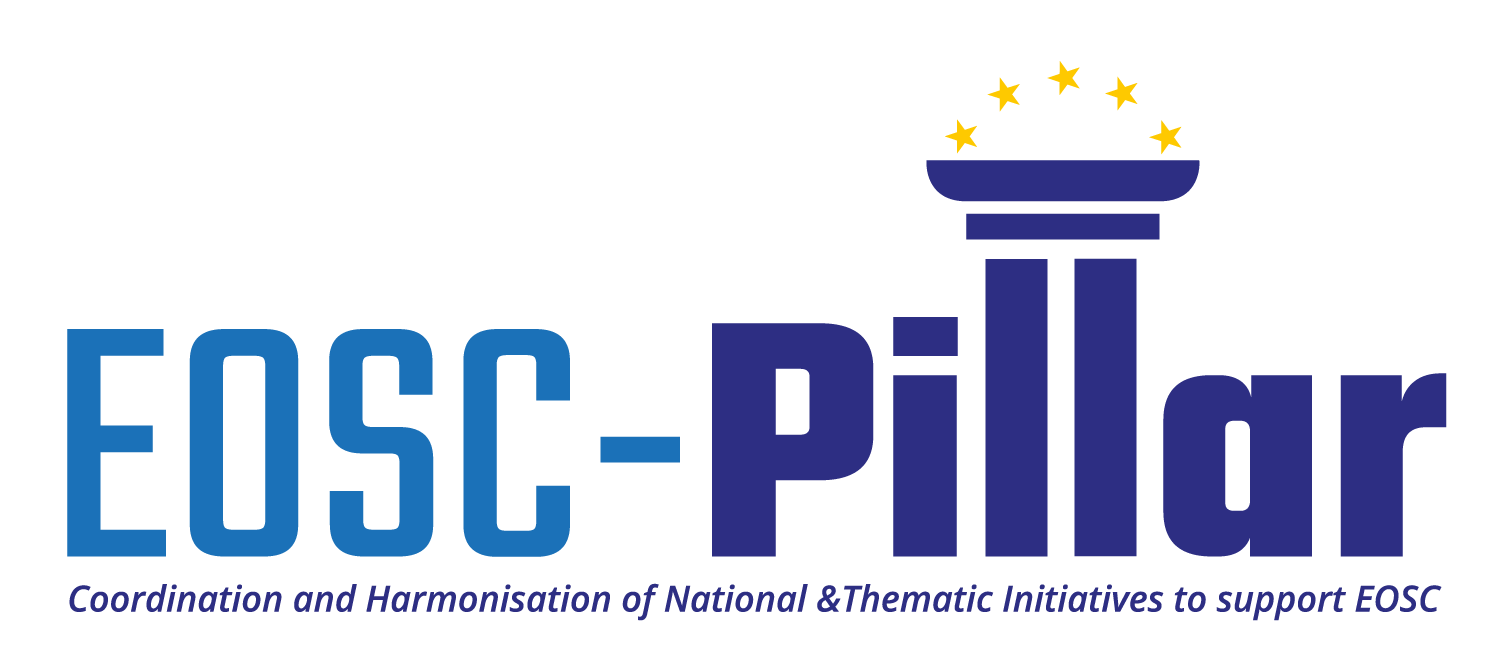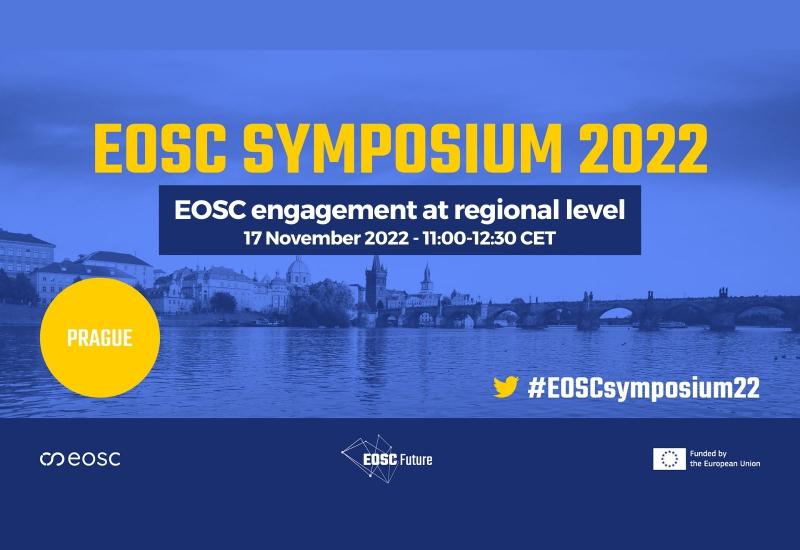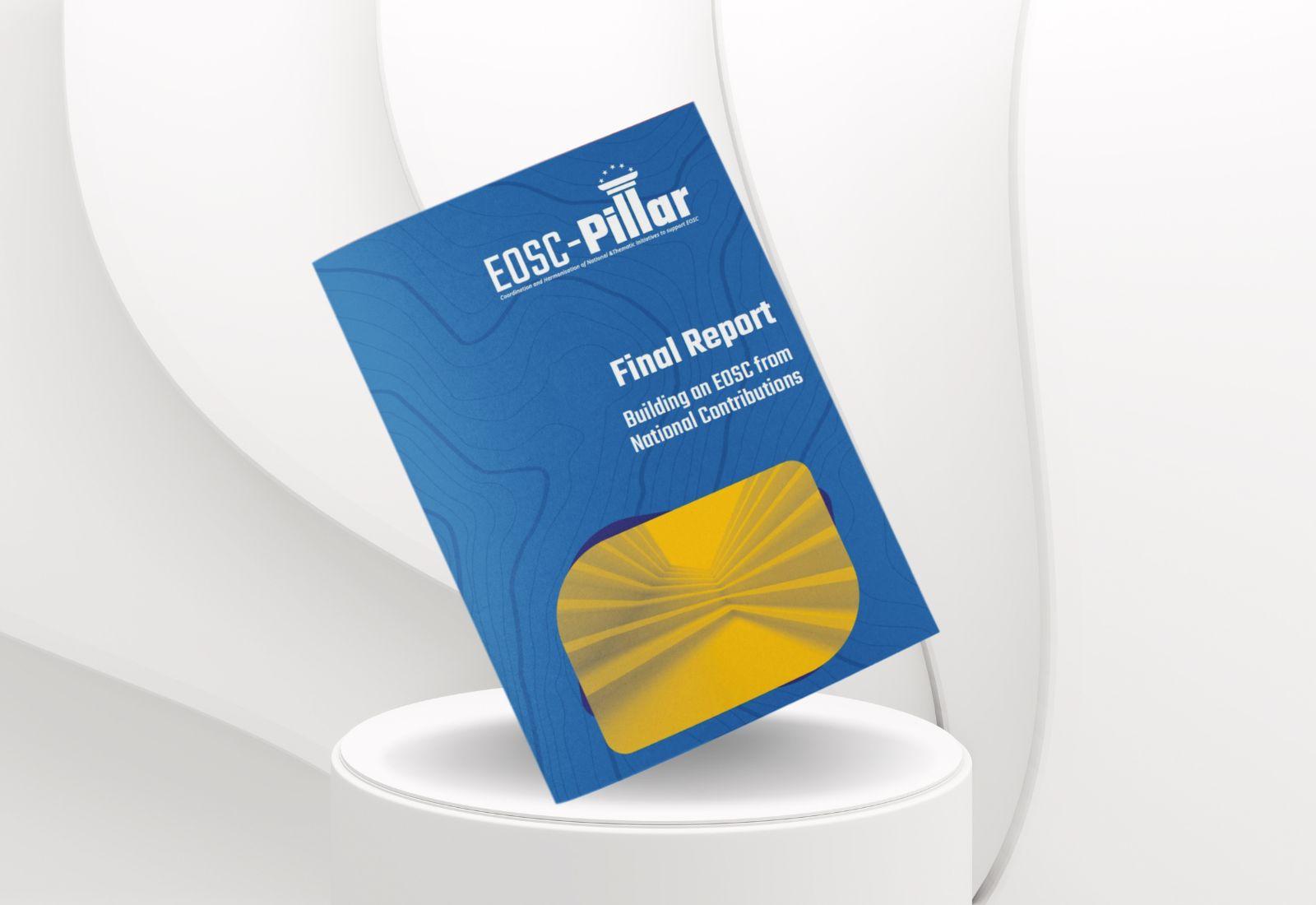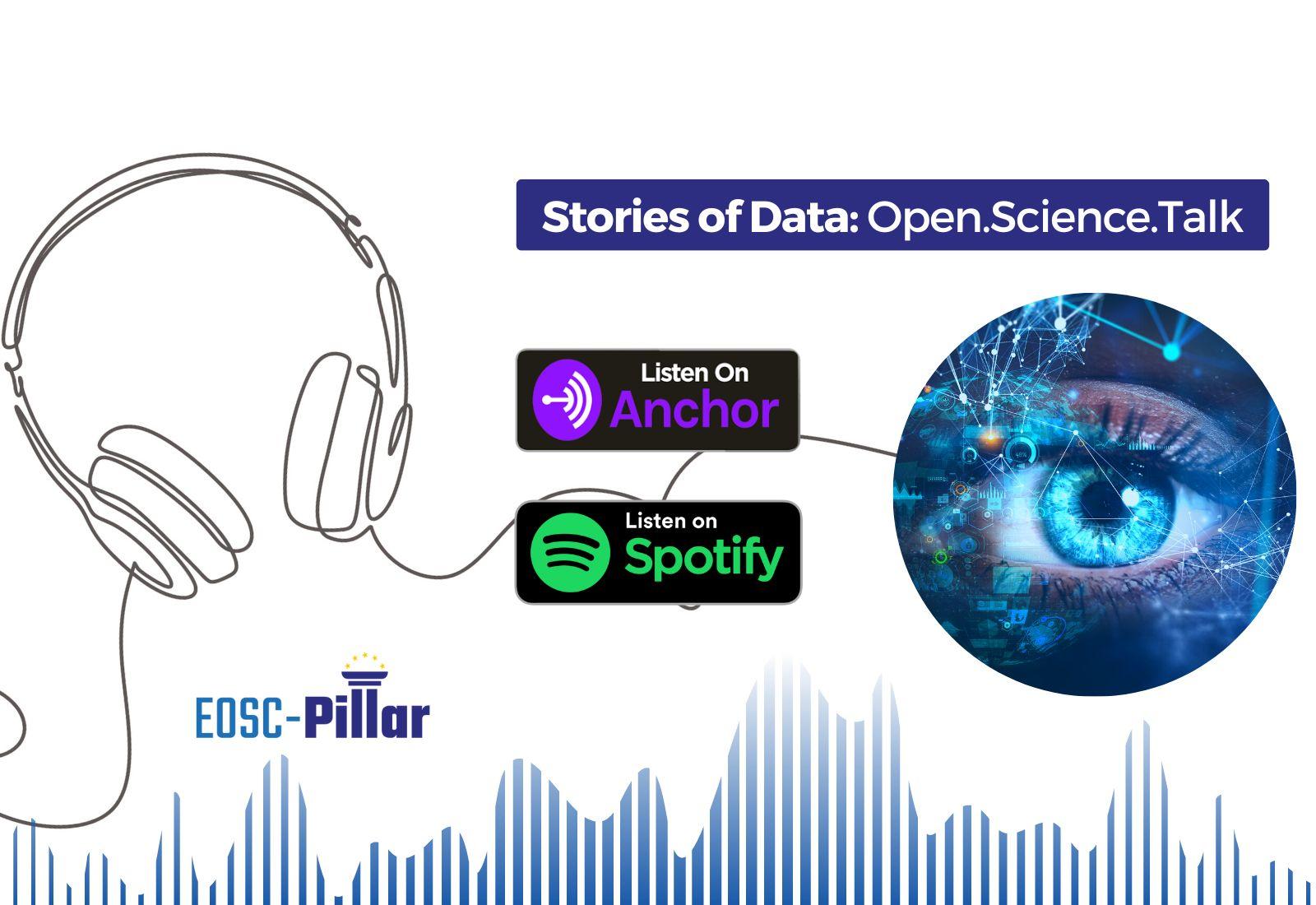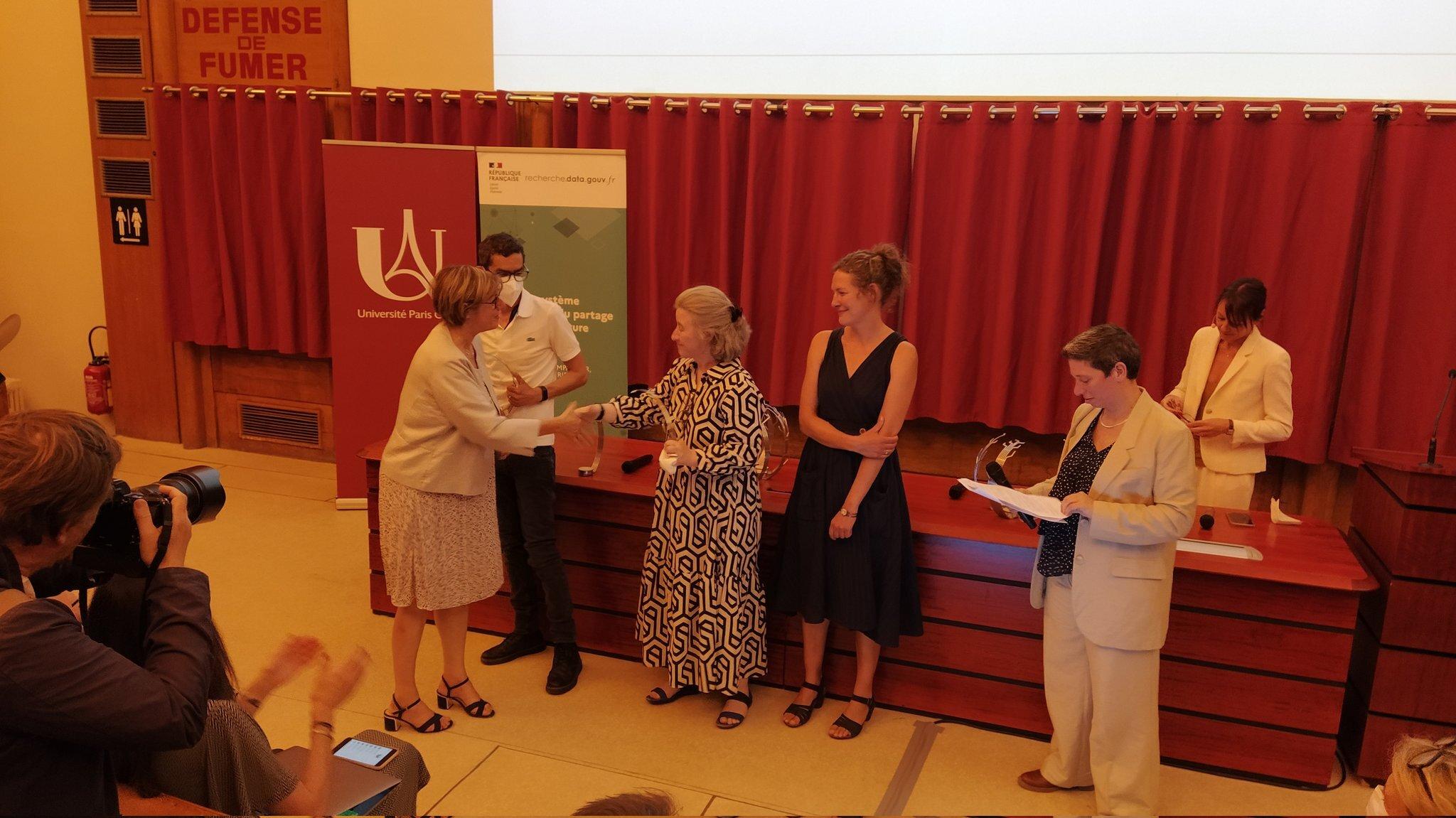
Coordination with EOSC related initiatives: EOSC-Pillar at the Coordination day in Budapest
February
13,
2020
Insight
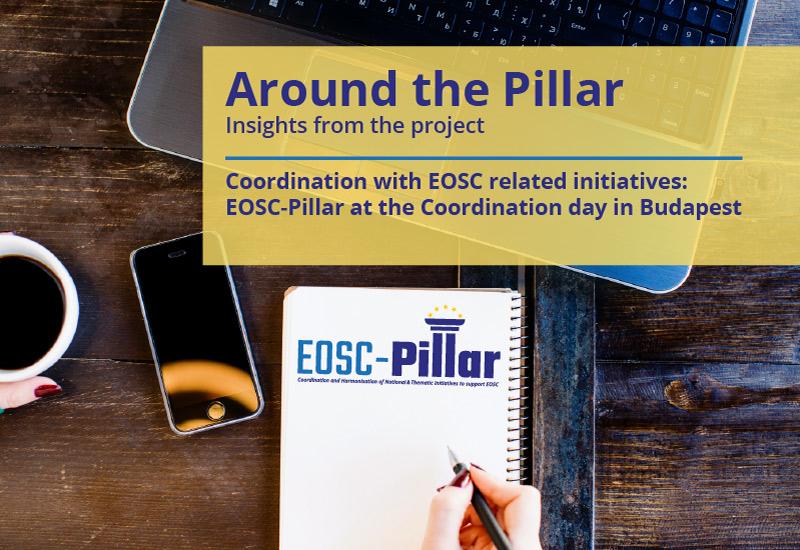
The EOSC Coordination Day, which took place in Budapest on 28 and 29 November 2019, organised by the EOSC Secretariat as an integral part of the EOSC Symposium, was an opportunity for EOSC-Pillar’s project coordinators, Federica Tanlongo and Fulvio Galeazzi from GARR, to discuss with other stakeholders how the project could actively engage with the other thirty EOSC-related projects invited to help support the implementation of the EOSC. This collaboration represents a fundamental milestone in the EOSC roadmap. The Coordination Day served as a follow-up on the activities that had been elaborated and discussed at the first EOSC Concertation Meeting organised by the European Commission in September 2019.
Main goals in the context of the EOSC Coordination Day
EOSC-Pillar’s main goal within this specific context is to coordinate, on a policy level, national Open Science efforts across Austria, Belgium, France, Germany and Italy, and to ensure their contribution and readiness is aligned with the implementation of the EOSC. Moreover, the project works towards supporting the coordination and harmonization of national initiatives relevant to EOSC in the EU and investigate the possibility for them to interfederate at a later stage.
From a technical perspective, the project looks to help integrate initiatives and data/cloud providers through the development of common policies and tools, and facilitate user communities in adopting and using these services and to propose new ones born from their scientific domain.
To this end, the project will integrate a bottom-up approach — by voicing the requirements and needs expressed by the different scientific communities operating at the national level — and a top-down one — by harmonising the national strategies and translating them in a viable work plan.
In the longer term, this is expected to facilitate the design and adoption of common policies and streamline the process of joining EOSC for service providers and user communities while helping to populate the EOSC with useful services of wider European interest, based on the real needs and interests of the European scientific communities.
One of the major outputs of EOSC-Pillar is to produce and roll-out a Federated Data Space in the latter part of 2020. We see this as a measurable result where the outputs could be shared with the Working Groups of EOSC, namely the RoP, Architecture, Sustainability.
EOSC-PILLAR’s contribution to the four newly defined Interest Groups
One of the key discussions at the meeting concerned the establishment of four new EOSC Interest Groups (IGs).
- Service and Research Product Catalogues
- Researcher Engagement and Use cases
- Federating Core
- Glossary
The aim of these IGs is to share results and align their work with the short and long-term objectives of the EOSC in mind. The 60 participants at the meeting agreed that the set-up of these IGs on EOSC priority topics would be an effective way for projects to contribute to the work of the EOSC Executive Board Working Groups.
As part of EOSC-Pillar’s work plan it sees its strategic and practical input in IG 1 “Service Onboarding & Catalogues of services and research results” where the set of Use Cases identified within the project may deliver concept papers to the EOSC WGs. These use cases could also serve as relevant “Test Science Use Cases” for the benefit of the cluster projects as well as to serve as a synergy exercise.
Pursuing the EOSC’s interest in enhancing researchers’ participation from the use cases in EOSC-PILLAR, might be relevant in contributing actively to the second IG “Researcher Engagement and Use cases”, here EOSC-Pillar may deliver a concept paper for the EOSC WGs and to the IG 2 on the results achieved there.
EOSC-Pillar could also add value to the third IG on the “EOSC Federating Core” where, as part of its milestones and major results, it would need to produce a "Federated Data Space" that equally could serve both the WGs of EOSC for RoP, Architecture, Sustainability as well as IG 3.
The four Breakout Sessions
The first Breakout Session named User Engagement and Use Cases was chaired by Andreas Rauber, TU Wien. In order to facilitate a better flow of information, an online space with discussion groups was implemented in early 2020 on the EOSCsecretariat.eu website. This virtual platform provides an open space for collaboration open to members of EOSC-related projects. In particular, EOSC-Pillar will be involved in order to collect the outputs documenting researchers needs, to gather results from events, to collect contact names of the projects and ultimately to discuss how this information will feed into IGs.
EOSC-Pillar's participation in this group is instrumental to improving the project's engagement strategy, outline similar strategies at the national level in the Pillar countries and making sure the voices of the national communities are heard in this context. Coordinating engagement among the players in the wider EOSC environment is also important to avoid confusing potential users and data providers receiving information from different sources.
The second breakout session was chaired by Paolo Manghi from CNR, technical director of OpenAIRE, and it focused on the Catalogues of Services and research results. Its focus was the catalogue of services as a common point of interest for each EOSC-related project. The strategy adopted by the IGs is to identify use cases for each of the catalogues, select the catalogues that should be part of the Federated Core, ensure the interoperability and sustainability of catalogues, and enhance existing work and experiences in order to provide feedback on this work.
The Onboarding session was led by Owen Appleton from EGI Foundation. In this session, the full group endorsed the decision to have a unique Interest Group with different subtopics, the onboarding and the catalogue of services, as the majority of the representatives are involved in the same discussions. The IG will discuss aspects related to EOSC catalogues and onboarding mechanisms, gather existing work and experiences, and analyse use cases.
EOSC-Pillar proposes a federated approach based on national catalogues interoperating with the EOSC core, where the onboarding and validation of data/services is largely delegated to the operator of the national catalogue (ideally the National OS initiative), according to a shared policy and a mechanism of trust similar to what we see in Identity Federations (on which some of the EOSC-Pillar partners have considerable expertise). Consequently, a first round of consultations with projects (e.g. EOSC-Nordic) or RIs which have a similar approach has already started, and the topic was also addressed as one of the collaboration items in the INFRAEOSC05 Cross-Project Collaboration Agreement (where a dedicated Task Force was set up) and the work in this IG will enlarge this collaboration to a wider set of projects, while potentially allowing with its openness to involve in the discussion also the intended users of the services/catalogues and the growing National initiatives.
The final breakout session, the Federating Core (FC), was also led by Paolo Manghi from CNR. The EOSC FC Interest Group, focuses on the activities related to enhancing, adapting and connecting, as well as developing and setting up the federating core. The FCIG is of a rather technical nature and serves to improve the mutual understanding between participating projects and those actively developing the core components.
The representatives involved, including EOSC-Pillar, agreed on the following capabilities of the Interest Group: shared resources such as a common authentication service; the discovery service or the monitoring service; a portfolio, such as the list of services and their providers; a compliance framework such as the set of standards, regulations, policies etc. that govern the services provided.
Next Steps
It is clear that EOSC-Pillar is in a position to offer relevant content within the majority of the IGs and should capitalise on this opportunity. From a technical point of view, EOSC-Pillar will focus on the requirements from the use cases, especially through the voice of researchers, so that this can be shared with the EOSC Governance and WG boards in order to get the opinion across in a pragmatic way.
From a Policy point of view, the project is working on establishing firm liaisons with ministerial representatives and cooperate with the other INFRAEOSC 5b projects at the EOSC-Hub week in May. This would present an opportunity for all of the relevant representatives to define their Open Science policies and their relationship with the EOSC medium-term goals.
You can find the full report of the EOSC Coordination Day on the EOSC Secretariat website



